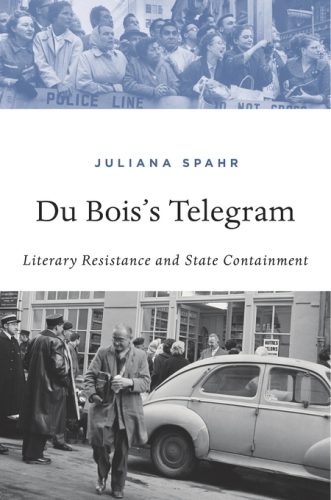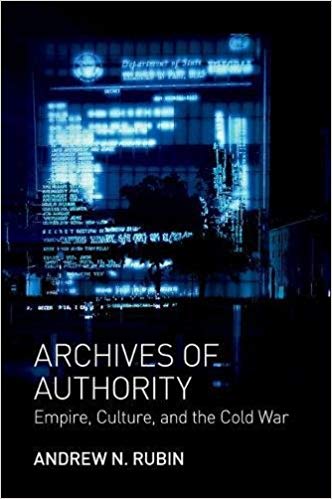Commentary/Interview: “Du Bois’s Telegram” — Restricting Literary Resistance
By Bill Marx

We “follow the money” in politics. But what about the arts? When it comes to culture, the popular assumption is that philanthropists, corporations, and governmental organizations are neutral or idealistic players, funding imaginative projects dreamed up by artists and institutions. But can we make this assumption so easily?
A current catchword is ‘resist.” Yet literature in the U.S. today rarely engages with radical political ideas and organizations; it is content to murmur polite liberal protest. A sliver of left-wing politics is growing more progressive but, for some reason, our writers (playwrights, poets, and novelists) hang back, clinging to moderation and safety. Could there be a connection between their sources of income, which are increasingly institutional or government-based, and the timid stances our writers are taking? Is there a disconnect between artists and meaningful resistance movements? Does the centralized mainstream media neuter imaginative independence? Those questions came to mind while reading Juliana Spahr’s provocative Du Bois’s Telegram: Literary Resistance and State Containment (Harvard University Press), which explores the dependence of writers on the state, private foundations, and institutions of higher education. She examines the ways in post-1945 America in which the CIA, the FBI, the Ford, Rockefeller, and Poetry Foundations have undercut the possibilities for cultural autonomy — as a means to explore the docility of literature today.
Spahr is a Professor of English at Mills College. She has written eight volumes of poetry, including Response, winner of the National Poetry Series Award. I e-mailed her questions about why she thinks literature has become so isolated from meaningful politics, and if there is a way to overcome corporate obstacles to the creation and distribution socially-engaged art.
Arts Fuse: In her blurb for your book, Claudia Rankine writes that you explore how “the promoted, the funded and the heralded, from Richard Wright to Gertrude Stein to James Baldwin, do the work of the nation state under the umbrella of culture.” Is that what you set out to do? Or to diagnosis a problem — that American culture has been manipulated (or skewed) by foundations, institutions, and the government?

Author Juliana Spahr
Juliana Spahr: The book began as an attempt to understand the current state of literature in the US. And eventually that morphed into this question: “why is contemporary literature not like literature in the 1970s, a time when literature had robust ties to social movements?” And as I tried to answer that I kept going back in time. Or I felt as if there was not any one easy answer. And I also felt that this answer had very little to do with the behavior of writers.
AF: You argue that literature is a genre that is “unusually manipulated and dependent.” Yet you admit that government is not suppressing writers. Why do you think literature is so vulnerable? Are writers taken in by the popular (and convenient) belief that they are “independent and innocent”?
Spahr: I would say yes to the last question. But in some ways they are right to be taken in. They are independent at the point of production, as in when they sit down to write. And this matters, I think. I would not want to dismiss that.
I do not think the government right now is suppressing, as in harassing, writers much. But I do think that the government, as is usually does, is interested in how it can instrumentalize literature. And it has been willing to instrumentalize cultural production when it needs to do so.
I have been trying to understand if literature is uniquely vulnerable. And although this is an impossible question, it might be.
But right now I would only say that the government and private foundations are more involved in, or have more impact over, a larger percentage of prestige literary production than they have in the past.
AF: One of your points I find particularly powerful: “There is no moment where a significant amount of funding for the arts was awarded by any sort of organization with a politics that is anything more contestatory than liberal.” Why is it important that writers be funded by, as well as be part of, a politically radical community?
Spahr: I am not sure it is important, but it is the sort of literature that I interests me so I guess it is important to me. But also, one of the things that gets said about literature in this moment is that it is political, that it has the “right” politics, that it can counter Trump, that it builds empathy and counters racism, that it can change lives. So because we think of literature as having the “right” politics, it is probably worth understanding the political affiliations of the various institutions that distribute and fund its production. This does not mean that literature itself is “liberal” in concern necessarily, although for sure a lot of it is.
AF: Is what you refer to as “cultural autonomy” possible — or is it simply a chimera? “Literature,” you write, “carries a relation to nationalism in the very materials of its composition.” Can artists, however they posture politically, ever be more than domesticated and safe?
Spahr: I want to believe in cultural autonomy, or a version of it. I don’t see what it gets us to just abandon the idea. I still want to hold onto the idea of a radical literature. We’ve seen it at moments. I want to think about how we might get it back.
AF: You argue that foundations (and, I would add, large banks) fund multicultural, diversity projects, which assuage liberal concerns, but turn away from supporting anti-capitalist, anti-imperialist efforts. That has made literature, in one of the studies you refer to, “an object of cultural consumption for dwindling and aging publics.” But don’t these same institutions and organizations fund more popular projects with political bite, such as documentary films?
Spahr: They do. They sometimes also fund radical literatures. There is a long tradition of cooptive funding. And there is also always a certain arbitrariness to what gets government and foundation funds and what does not. But where ever these funds are going, these institutions exist so as to maintain a version of the status quo and their interest in cultural production is in instrumentalizing it to maintain the status quo.
This question that you ask also makes me wonder if it is true that if there is a form of cultural production that more or less only exists because of government funding, does that limit its audience? I can’t decide though if that funding produces an art form that is “out of date” or “outmoded” (two terms that carry more insult than whatever term I want to use) or if cultural production just inevitably waxes and wanes and what the funding does is stop the wane that would be an inevitable result of an art form becoming “out of date” and “outmoded.” Thus potentially deterring the waxing. There is probably no way to prove this. And I’d have to think about it a lot more to figure it out.
AF: Isn’t the current situation a paradox? More ‘literature’ is being published than ever before, with the opportunity for more radical voices, but alternative networks of distribution and social concern are fading away because of the growing power of centralization.
Spahr: Partially yes. More literature is being published for sure. A lot more. So yes, more opportunity for radical voices. I also think networks of distribution are also increasing because of new technologies which has the potential to be game changing. But if by social concern you mean readership, then yes. That is down too. Literary fiction and poetry readership numbers are way down (and I am hesitant to read that recent study by the NEA that shows an increase in people who have read more than one poem as indicative of a long term trend). And book sales for the category of fiction (so not just literary fiction but also what gets called genre fiction, etc.) are way down. There’s some rumor that poetry sales are up but poetry is such a small small part of US literary production I am again not sure what this means. This paradox as you call it is fascinating, I think. I really don’t know what to make of it. I just keep looking at the increase in new titles being published and being baffled by it. Although only about 6,000 people a year get a degree in creative writing, that number too is way higher than it has been in the past. So there’s something here about how more people want to be, and can be, writers of books. These sort of self help programs, like that month in which you write a novel, these too fascinate me. We are in a moment where it seems to be that to write a novel is presented as something that is good to do or is part of some sort of self actualization. But reading, who knows…
AF: I couldn’t help but apply some of your ideas about the power of the state and institutions to the practice of literary criticism. Criticism is often seen as a site of powerful resistance to the way things are. Is its docility the result of the same factors that have compromised imaginative writers?
 Spahr: That’s a good question and I’d have to do a lot more thinking to even begin to answer it. Andrew Rubin’s Archives of Authority works some on this question. My guess is that, and Rubin suggests this too, scholars are just as impacted, if not more so. For another project I’ve been reading some of the scholarship on private foundations. And one thing I’ve noticed is that the scholarship on foundations was really convinced that foundations were corrosive in the 1980s. And at that moment most of the scholarship was not funded by foundations. Now, most scholarship on foundations seems to be funded by foundations in some form and it is way less convinced that foundations are corrosive. Did the funding do it? I don’t know. I guess it depends on what you think about foundations.
Spahr: That’s a good question and I’d have to do a lot more thinking to even begin to answer it. Andrew Rubin’s Archives of Authority works some on this question. My guess is that, and Rubin suggests this too, scholars are just as impacted, if not more so. For another project I’ve been reading some of the scholarship on private foundations. And one thing I’ve noticed is that the scholarship on foundations was really convinced that foundations were corrosive in the 1980s. And at that moment most of the scholarship was not funded by foundations. Now, most scholarship on foundations seems to be funded by foundations in some form and it is way less convinced that foundations are corrosive. Did the funding do it? I don’t know. I guess it depends on what you think about foundations.
AF: You conclude that socially-engaged art, the kind that represents genuine resistance to the status quo, is a faint possibility. Do you see it as the role of criticism, books such as Du Bois’s Telegram, to disabuse artists that they are making a difference? To make them see how compromised they are?
Spahr: As a writer, I want to understand these things. I don’t know if I want to argue with artists about their revolutionary potential. I would rather think that if they are so devoted to their revolutionary potential that they want to figure out how to make their work more an integral part of any possible revolutionary moments. I want to support them in this process.
AF: You note organizations in the ’30s that encouraged literature’s ties to challenging left-wing thought, such as the American Artists’ Congress, the Artists Union, and the Harlem Artists Guild. You don’t mention working class unions, which often had their own magazines. Why couldn’t these organizations return (in some form) and support genuinely radical literature? For example, in the future there might be funding from democratic socialist organizations.
Spahr: I just saw some DSA branch on twitter asking for poetry for their journal last week. Lol. And I went, oh there it is. I’ve been waiting for it. I didn’t look much at union magazines, which is a fascinating idea. But yes, these sorts of organizations could support this literature! There is nothing stopping writers of literature or other concerned parties from building an infrastructure for literary production that is independent of the state and private foundations, one that is aligned with a left of liberal politics. It just isn’t happening much right now and, more troubling, it isn’t seen as a loss. And that might be related to that question you just asked about what do I want artists to get out of this history. It might be that I want them to realize that there is a history of alternatives that has been suppressed but it still presents a viable alternative.
Bill Marx is the editor-in-chief of The Arts Fuse. For over three decades, he has written about arts and culture for print, broadcast, and online. He has regularly reviewed theater for National Public Radio Station WBUR and The Boston Globe. He created and edited WBUR Online Arts, a cultural webzine that in 2004 won an Online Journalism Award for Specialty Journalism. In 2007 he created The Arts Fuse, an online magazine dedicated to covering arts and culture in Boston and throughout New England.
Tagged: criticism, Harvard University Press, Juliana Spahr, Literary Resistance, literature, politics
